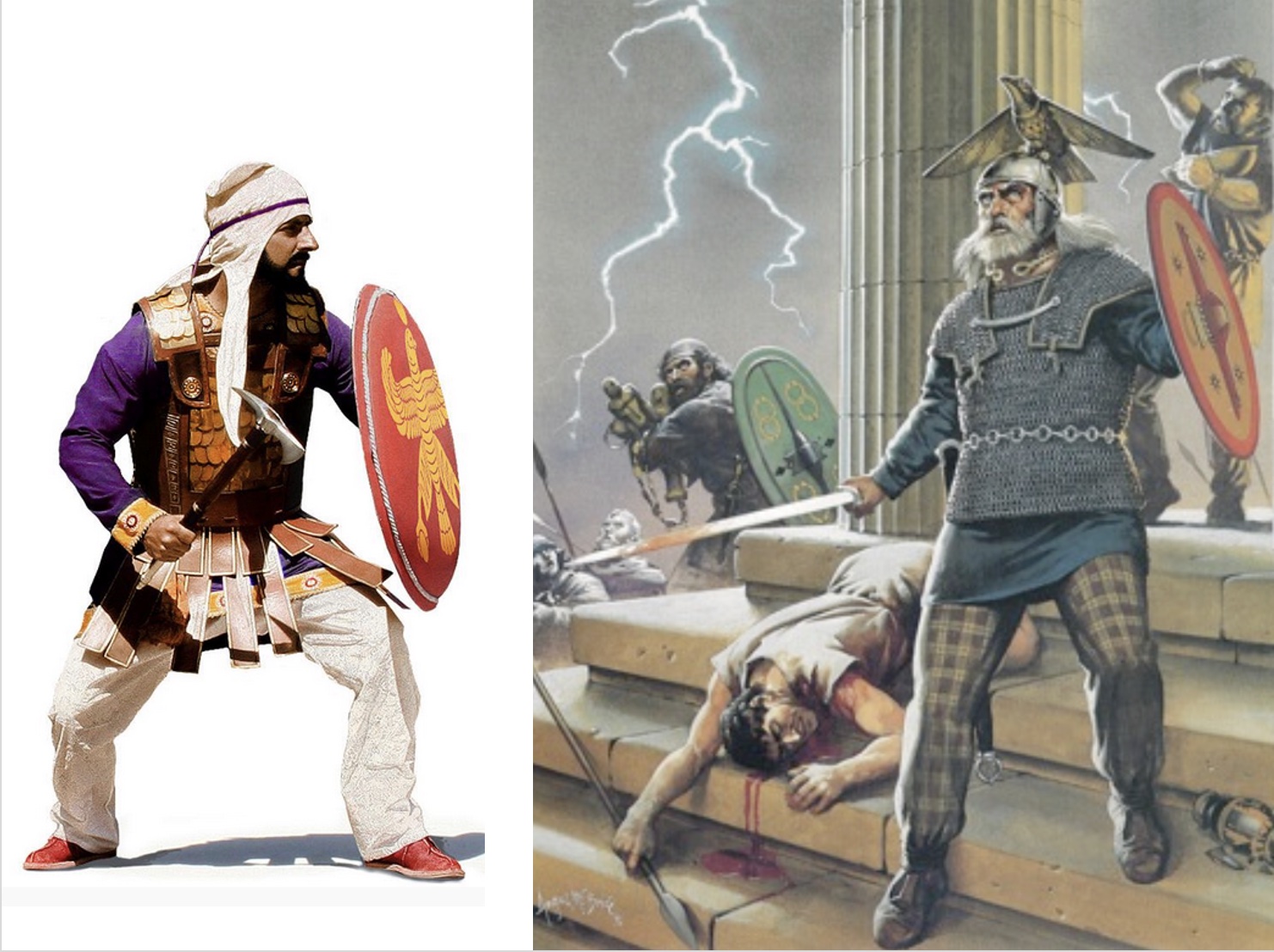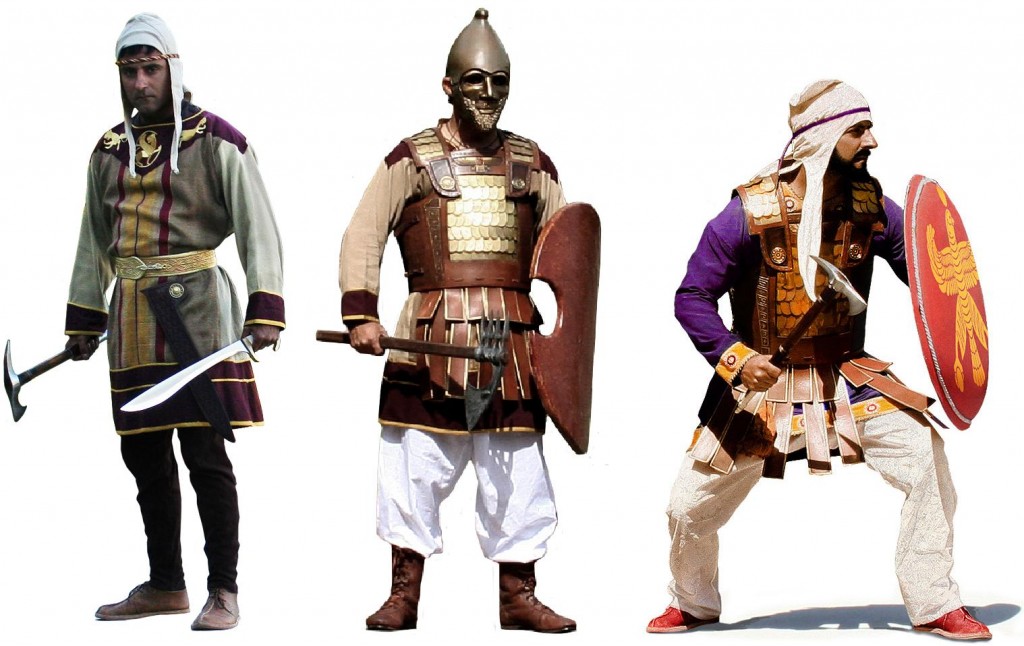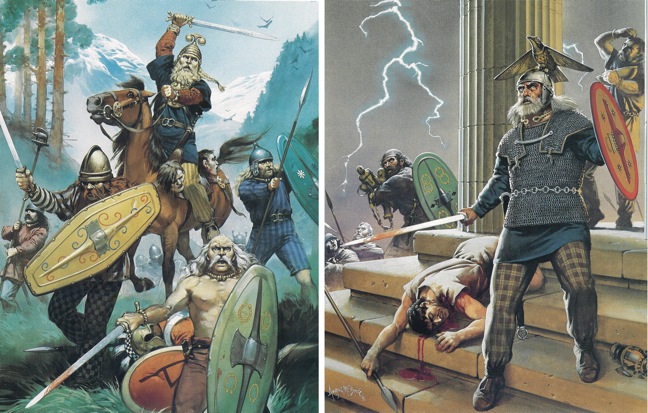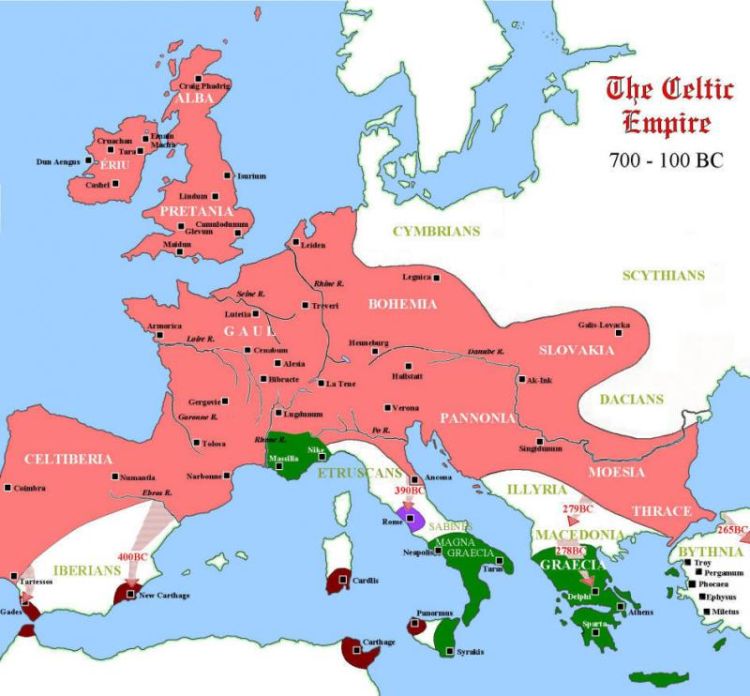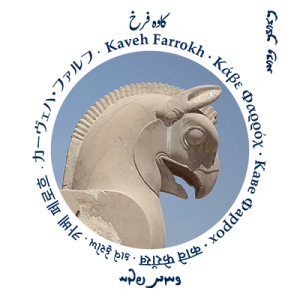One primary that has been not been asked in depth by military historians (and historians in general) is what would have happened if the armies of Achaemenid king Xerxes had succeeded in conquering Greece in 480 BCE?
If Greece had fallen, the gates of Europe (Oropia in Greek) would have flung open to conquest by Achaemenid armies. Eastern Europe and parts of the Balkans were already settled by Iranian-speaking peoples kindred to the Medes and the Persians. These were the ancient Scythians (Saka Paradraya or “Saka beyond the Sea” in Old Persian). As noted by Cotterell:
“…the close relations of the Scythians with the Persians is perhaps most illustrative…in the… fact that…Scythians and Persians spoke closely related languages and understood each other without translators” (Cotterell, A. (2004). The Chariot: The Astounding Rise and Fall of the World’s First War Machine. London, England: Pimlico, p.61).
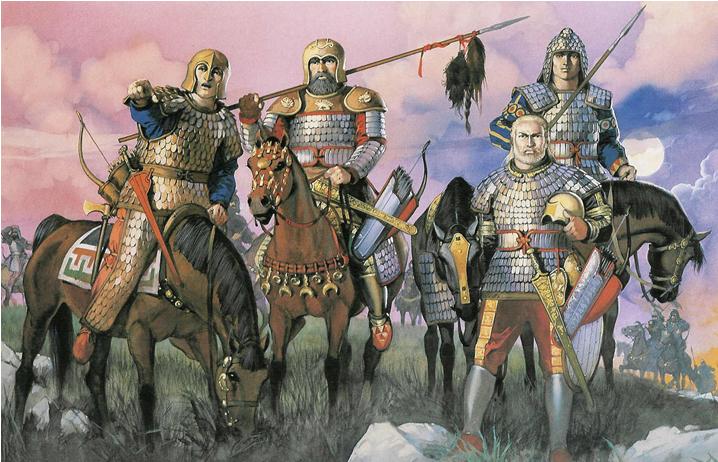 The Scythians or Saka Paradraya in Eastern Europe (circa 4th century BCE). As noted by Newark: “They [Scythians] were Indo-European in appearance and spoke an Iranian tongue that bought them more closely to the Medes and Persians” (Source: Newark, T. (Historian) & Mcbride, A. (Historical Artist) (1998). Barbarians. London: Concord Publications Company, p.6; Color Plate p. 7).
The Scythians or Saka Paradraya in Eastern Europe (circa 4th century BCE). As noted by Newark: “They [Scythians] were Indo-European in appearance and spoke an Iranian tongue that bought them more closely to the Medes and Persians” (Source: Newark, T. (Historian) & Mcbride, A. (Historical Artist) (1998). Barbarians. London: Concord Publications Company, p.6; Color Plate p. 7).
The professional military backbone of the Achaemenid army was composed of Persians, Medes and Scythians (symbolic of their authority is the fact that all three peoples are seen carrying the ceremonial Akenakes dagger at the depictions at Persepolis).
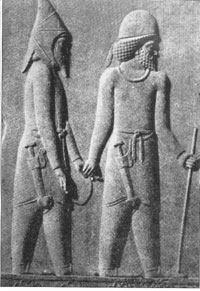 Mede and Saka Tirgrakhauda (Old Persian: Saka with pointed hat) at Persepolis, note the ceremonial Akenakes dagger worn by both Iranian figures (Source: Kaveh Farrokh, 2001).
Mede and Saka Tirgrakhauda (Old Persian: Saka with pointed hat) at Persepolis, note the ceremonial Akenakes dagger worn by both Iranian figures (Source: Kaveh Farrokh, 2001).
The Achaemenid military was instrumental in facilitating the expansion of the empire into not only the entire ancient Near and Middle East but also into Central Asia, the northwest portion of the Indian subcontinent, Africa (into ancient Egypt), and (at its maximum extent in 480-479 BCE) across the Hellespont into Europe. Only the militarily efficient and professional Greek Hoplites stood between the Achaemenid military machine and the European continent.
Reconstructions and depictions by Ardashir Radpour of Immortal Guardsmen of the Achaemenid military (Source: Ardashir Radpour & Holly Martin Photography).
Who would Achaemenid troops have faced in battle if Greece had been conquered by the empire? By 480 BCE, much of the interior of Europe had fallen under the sway of the mighty Celtic warriors. The Celts are known to be among ancient history’s most formidable and robust warriors, who at the height of their power even challenged Rome itself.
Celts attack the Greeks in 3rd Century BCE: (Left) Celtic raid into northern Greece (right) Celtic chieftain Brennus (Celtic: King) and his warriors engaged in the sack of the Temple of Apollo in Delphi, Greece (3rd Century BCE) (Source: Newark, T. (Historian) & Mcbride, A. (Historical Artist) (1997) Hong Kong: Concord Publication Company, pp. 12, 14, Color Plates 5-6). The Greeks eventually prevailed and ejected the Celts with Brennus then reputedly taking his own life. A fearsome warrior race, Celtic warriors were of large stature and build, wielding the long-sword and Celtic lance.
It was through the hard campaigning of Roman General, Consul and Statesman, Julius Caesar (100-44 BCE) and his successors when Rome finally gained military superiority over the various Celtic tribes of Gaul and Brittania in Western Europe.
Map of Europe at the height of Celtic power. Roman conquests, Germanic expansion and Celtic infighting led to the demise of the Celts. A number of Celtic raiders arrived into Anatolia, with numbers of Galatian Celts settling in the region of modern-day Ankara, capital of the Turkish Republic. The Celtic legacy endures in Wales, Scotland, Ireland and northern France (Brittany).
How would Achaemenid troops have fared against the tough, dour and robust Celtic warriors of Continental Europe? Without Greece to bar the Empire, the scenario of Achaemenid troops (especially the elite Immortal guards) facing the Celts in battle could have been a distinct possibility. The economic powerhouse of Continental Europe would probably have been too enticing for the commercially-minded Achaemenids to resist.
The first serious study of warfare between the Celts and the Achaemenids was recently addressed in the TV Program Deadliest Warrior. The weapons, personnel and training of Achaemenids and Celts were examined and compared, followed by 1000 computer simulations. The outcomes yielded interesting results: out of one thousand battle simulations, the Celts won 311 engagements, with the Achaemenid Immortals winning 689.
Immortal Guards(number of kills) | Celtic Warriors(number of kills) | ||
Bow & Arrow | 180 | 1 | Sling |
Spear | 247 | 126 | Lancea (javelin) |
Chariot (Scythed) | 135 | 14 | Burda (Celtic Club) |
Sagaris (Persian Axe) | 127 | 170 | Long Sword |
Total Kills | 689 | 311 | Total Kills |
The results suggest that despite the physical advantages of the Celts, they most likely would have been militarily overcome by the Achaemenids. The Immortals achieve kills in the triple-digit range with all of their major weapons: archery, spears, scythed chariots and the Sagaris Persian battle axe.
The Celts’ best weapons, the Lancea (javelin) and the Long Sword, achieved the highest kills against the Achaemenids. Surprisingly the deadly Burda (battlefield club) which could literally explode heads when wielded by a large and powerful Celt, proved of little effectiveness. The major reasons for the success of the Immortals in the simulations was attributed to rigorous training, fighting as a cohesive unit and the overall effectiveness of their major weapons. The below video clip provides a summary of this discussion.
Video clip of “Deadliest warrior: Celtic warrior versus Persian Immortal”. The comparisons and simulations of Celtic vs. Immortal weapons systems, training and battle tactics suggest that the Immortals would have militarily prevailed over the Celts by a wide margin.
While more studies are required to reach a definitive conclusion, it would appear at this juncture that had the Immortal Guards faced the Celts in battle, the Achaemenid Empire would most likely have gained territory at Celtic expense, in continental Europe. How far the Achaemenids would have advanced into Europe can only be guessed.
Herodotus may have provided a hint as to possible historical developments, had the Achaemenids been able to conquer Greece. Reporting on the speech of Achaemenid king Xerxes before his invasion of Greece in 480 BCE:
“Persians, I have assembled you to make this demand, that you bear yourselves bravely and never sully the great and glorious achievements of the Persians … I know that we march against valient men, and if we overcome them it is as certain that no other human army will ever withstand us (Herodotus, the Histories, 7.53).”

